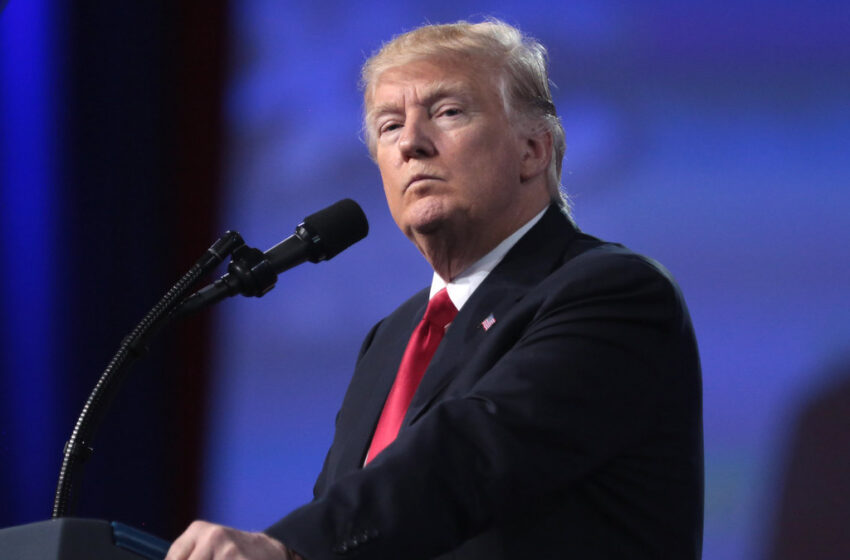
The Tyranny of Trump: Should he be allowed to run in 2024?
Whilst United States politics may seem extremely distant from the University of Leeds, Trump’s term in office shows that this is a global issue. Currently, the US court of appeals for DC is arguing that the second impeachment of Trump is sufficient evidence for him to be disallowed from re-running for president this year. According to Time Magazine, in order to protect the separation of powers, the courts and legislature must be able to check (and restrict where necessary) who is allowed to come into power. From an American history perspective, this protects against an overly powerful executive, against which the constitution itself was written under post-British-colonial control.
Whilst the separation of powers is clearly vital to the preservation of democracy, if previous presidents get banned from incumbency, this could cause huge problems for future executives. The backlash from Trump supporters, as summarised by a spokesman for his campaign, comes from the fact that “if immunity is not granted to a president, every future president who leaves office will be immediately indicted by the opposing party,” meaning presidents would be unable to act how they see fit throughout their time in office (according to BBC news).
Before Trump failed to be re-elected in 2020, his term in office was fuelled by controversial actions that increased polarisation amongst American citizens. Whilst the presidency as a whole seemed extremely chaotic due to constant claims of sexual assault and racist bigotry, his second impeachment trial stands out as the most obvious cause for banning him from running again. This impeachment falls on the basis that he incited violence in the capitol leading to the deadly January 6th insurrection, according to the New York Times. With unpublished tweets supposedly reading “March to the Capitol after. Stop the steal!” (Time magazine), Trump hoped to overturn the recent election results which he claimed were rigged. During the impeachment, according to an ABC News poll, 56% of voters agreed that he should be convicted and barred from office, resulting in a huge drop in support for the current candidate.
It is without a doubt that Trump should be held accountable for his incitement of violence towards the end of his presidency, followed by his failure to wilfully step down as president, therefore suggesting he cannot receive presidential immunity post-term. However, if Congress were to rule in favour of preventing him from running again, this would take the power away from the public to successfully elect a president.
With less than a quarter of the British public supporting Trump in any way, according to Politico.eu stats, it is clear why there is a huge backing for disallowing his re-election. However, the importance of this debate goes far beyond Trump alone. The threat Congress would put on democracy by ruling a popular (if not preferred) candidate unable to run for election, is bigger than any hatred for Trump and even goes beyond only affecting the United States. If he were to be voted in through the longstanding electoral system of the US, then surely it is the will of the people? If this is the case, then it is also important to consider the complexity and inaccessibility of the US voting system. In particular, whilst the British seem to hold a particular distaste for Trump, we must also recognise that the US election system is arguably far more complex than the UK alternative, and is not always considered fair and equal. For example, the ability for a candidate to win the popular vote but lose the overall election proves that it is not as simple as meets the eye, according to AP News. Therefore, if Trump is allowed to run again and manages to be voted in, it is crucial this is done through a trusted voting system.
Leading on from this, his attempt to overturn Biden’s electoral win was based on the fact that the election had been rigged due to sudden changes in state votes and additions of postal votes in favour of Biden (USA Today). This resulted in vast speculation on how fair the voting system was and led to increased mistrust in elections. Whilst this would surely be deemed irrelevant by Trump himself once he was in office, if he were to be elected via the very system that he claimed was rigged, his appointment in itself should be deemed flawed. This would act as self-sabotage for Trump, and therefore he should arguably be given the chance to be proven wrong. On the other hand, if the system is a fraud as he claims, this would suggest that his election could also be rigged in order to put him in office.
Therefore, if Trump is to be given the opportunity to be re-elected to preserve the rights of public election, one would hope that this is done through a fair and trusted voting system in order to protect multi-national democratic principles. Can this be said for the United States electoral system?

